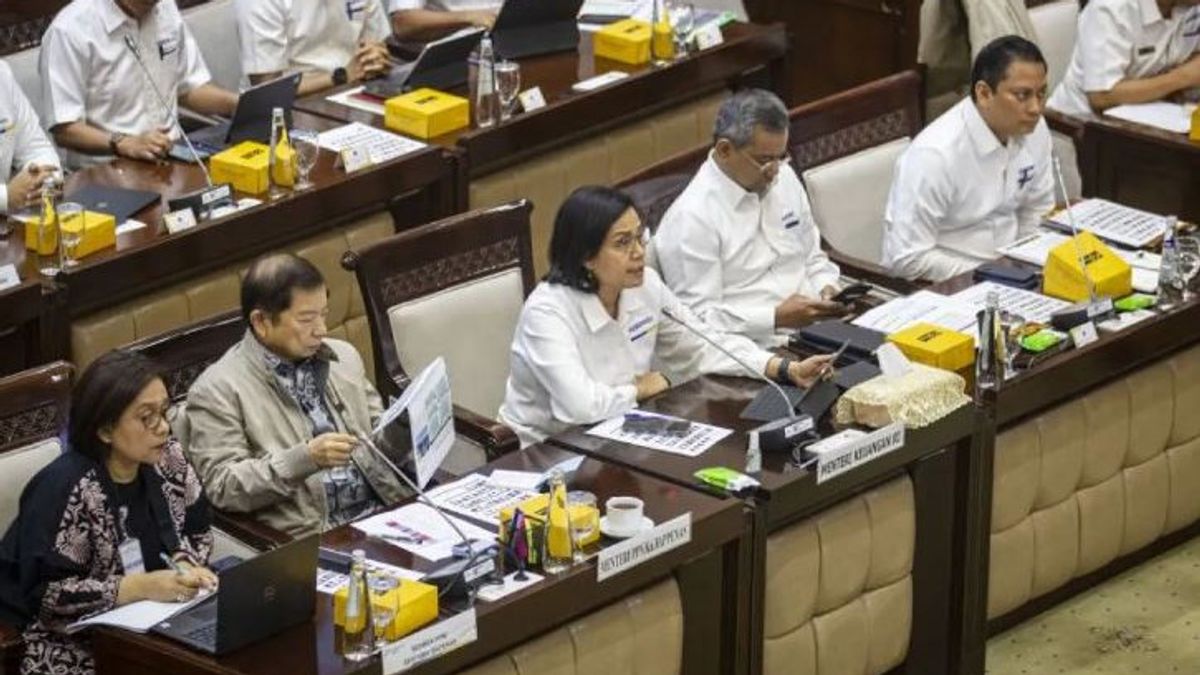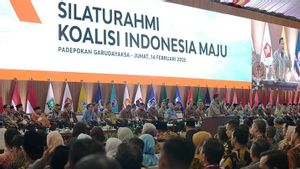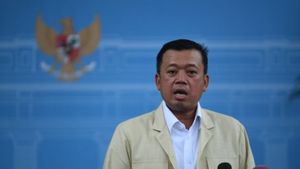JAKARTA Discussions on the education budget have become a conversation lately. This has become a problem after some time ago, Minister of Finance Sri Mulyani proposed reshuffling the 20 percent mandatory spending scheme or the compulsory education budget.
Sri Mulyani made this proposal in a working meeting to discuss the Draft State Budget (RAPBN) with the DPR's Budget Agency (Banggar) on Wednesday (4/9/2024).
So far, the 20 percent-dimensional spending budget for education is calculated from state spending. However, the former Managing Director of the World Bank suddenly suggested that the 20 percent scheme for the APBN education budget be calculated from state revenues.
Sri Mulyani revealed the reason. According to him, the allocated compulsory education budget of 20 percent of state spending tends to change education funds.
Meanwhile, the Special Staff of the Minister of Finance for Strategic Communications Yustinus Prastowo said that the discourse thrown by Minister of Finance Sri Mulyani was more of an effort to build a joint discourse.
An economic observer from the Bright Institute, Awalil Rizky, said that the change in the scheme would reduce the amount of the national education budget allocation. According to him, this decline has the potential to have an impact on the government's achievements in Indonesia's human development which are not optimal. Awil reminded that the realization of the education budget in recent years still indicates that Indonesia's human resource development is still not optimal.
Utak-atih budget wajib pendidikan menjadi perhatian sejumlah kalangan. Tak hanya dari practisi pendidikan, tapi juga pengamat ekonomi. Awalil Rizky mengatakan jika usulan Sri Mulyani ini disetujui, anggaran pendidikan akan turun signifikan. Ini karena tren pendapatan negara selalu lebih kecil dari belanjaran.
Looking at the 2025 RAPBN which is still being discussed, the 20 percent allocation of total expenditure of IDR 3,613.1 trillion reached IDR 722.6 trillion for the education budget. Meanwhile, if you use the revenue estimate reference of IDR 2,996.9 trillion, the 20 percent allocation for the education budget will reach IDR 599.4 trillion. There is a difference of IDR 123.2 trillion in these two schemes.
In the Webinar on the Fiscal Discussion of the Education Budget, Awalil said, the government's attempt to tamper with the 20 percent budget is a far-fetched discourse. From a fiscal perspective, said Awil, state spending is included in the expenditure reference, not income.
Awalil assessed that the discourse of this change is an interpretation of the law that is outrageous, as well as threatens the amount of the education budget allocation whose realization is less than optimal in the past few years.
"Why? Because every year the income is lower than spending, because there is such a thing as a deficit (fiscal)," Awalil said.
SEE ALSO:
Furthermore, Awalil Rizky said Sri Mulyani's proposal hinted that so far the education budget could not meet the percentage of the mandatory spending.
"This can be seen in government maneuvers over several shopping and financing posts, so that they include the category education budget," Awalil said.
As a result, the education budget in the APBN has never been fully realized for four consecutive years, from 2020 to 2023. For example, the 2023 State Budget has budgeted IDR 624.25 trillion, but only IDR 513.39 trillion or 82.24 percent has been realized.
Likewise, in 2022, the education budget will only be realized by 77.30 percent. Then in 2021 and 2020, the education budget will only be realized by 87.20 percent and 93.09 percent, respectively.
"The realization of the education budget has never been 100 percent and is getting lower in the second period of Jokowi20-2024, the 2024 outlook for the State Budget is only around 87.40 percent," he said.
In the Financial Note Book and the 2025 RAPBN, the government conveys that the use of the education budget is very crucial because Indonesia still faces a number of challenges to improve the quality of human resources (HR) so that it can become a superior generation.
The challenge is Indonesia's Human Capital Index (HCI) which is still below the average Southeast Asian country. One of the indicators is the achievement of learning results with international standards, such as the Program for International Student Assessment (PISA). In recent years, the PISA Indonesia score has shown a downward trend in all assessment subjects, namely reading, mathematics, and science.
The results of a study conducted by the Organization for Economic Cooperation and Development (OECD) in 2022 show that the competence of Indonesian students in the fields of mathematics, reading, and science has decreased. The results of the OECD research stated that the score of Indonesian students in the mathematical test was 366, a reading test of 359, and a science test of 383.
Thus, the PISA Indonesia score has decreased for two consecutive times. In the 2018 PISA test, the score obtained by Indonesian students also decreased on the three types of tests compared to the 2014 results.
Not only experiencing a downward trend, the figure is always below the global average. Even though the PISA score achievement is one aspect contained in the Medium-Term Development Plan (RPJMN).
Meanwhile, Education Observer Andreas added that in the future the government needs to provide equitable and quality educational facilities and facilities. According to him, many areas have not had sufficient educational facilities and most private parties play a role.
"My advice is that the new government must focus on building education infrastructure. Don't use the education budget for free food programs, focus on building human resources through education," Andreas emphasized.
The English, Chinese, Japanese, Arabic, and French versions are automatically generated by the AI. So there may still be inaccuracies in translating, please always see Indonesian as our main language. (system supported by DigitalSiber.id)















